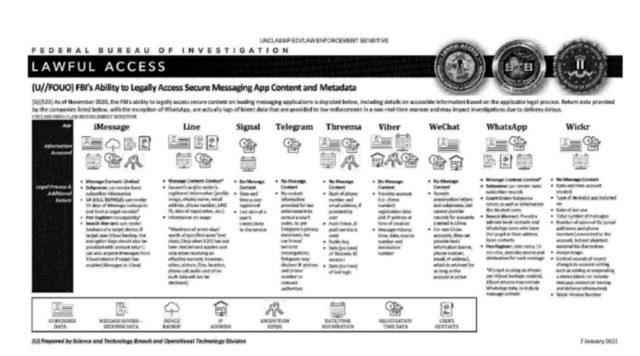According to the document, WhatsApp, iMessage and Line offered “limited” message content following a legal request from the FBI. While these platforms willingly offered ‘some’ data, others such as Signal, Telegram, Threema, Viber, WeChat and Wickr did not provide any message content information. While “limited” data should not cause any alarm, the type of information shared may not be so innocuous.
The popular Android messaging app shares “basic subscriber records only” with a subpoena.
But in simpler terms it means that the FBI can retrieve address book data from both the ‘target’ and its connections if there is a warrant. They can even track the source and destination of messages sent from the app. That is, if you have saved the target’s contact information, your address book can also be searched by the FBI. This is even worse for the iMessage service.
iMessage users have access to actual message content as the dev-based Cupertino dev is required to back up their messages to iCloud, where it is required to hand over the iCloud encryption key under FBI warrant.
